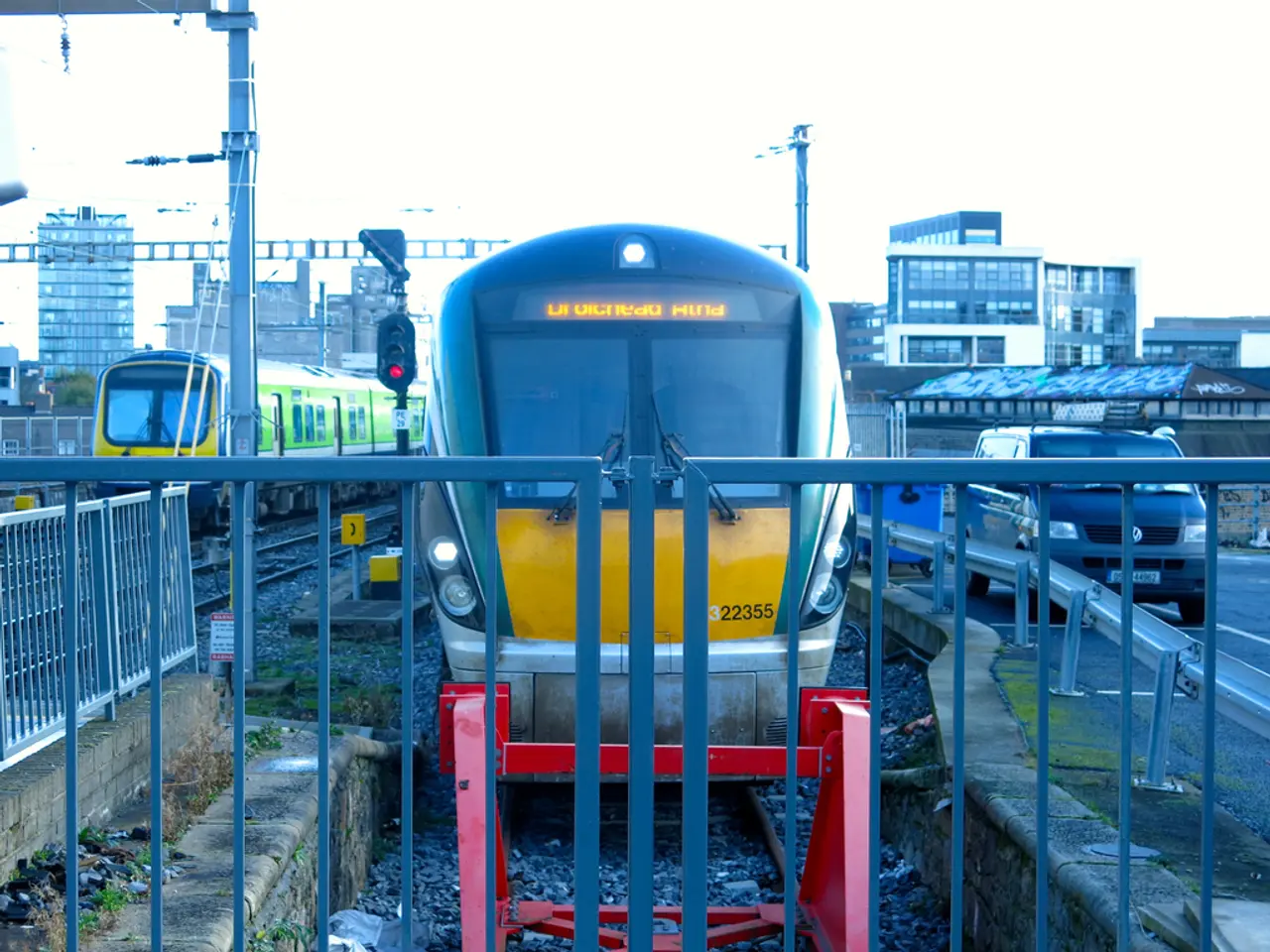Passenger Info on Commencement of Hamburg-Berlin Infrastructure Renewal Program - Passengers' Essential Information for the Launch of Hamburg-Berlin Transport Connection
Deutsche Bahn Begins Major Renovation on Hamburg–Berlin Railway Line
The Deutsche Bahn (DB) has announced that it will commence a significant repair project on the Hamburg–Berlin railway line on August 1, 2025, and the work is expected to last for nine months until April 30, 2026 [1][2]. During this period, the entire 278-km line will be closed for extensive renovation works.
Timeline and Scope
The project will be divided into three construction sections: Hamburg–Büchen, Büchen–Dergenthin, and Dergenthin–Berlin. The renovations include the renewal of over 180 km of track, replacement of around 200 switches, installation of six new grade-separated junctions, and modernization of signaling and traffic control infrastructure at 28 stations [1][2]. The project also covers adjacent branch lines affecting a wider regional network, such as Mölln–Büchen–Lauenburg, Hagenow Stadt–Ludwigslust, Ludwigslust–Parchim, etc. [1][2].
Impact on Traffic
The Hamburg–Berlin direct passenger and freight rail traffic will be completely suspended during the renovation period. Long-distance trains will be diverted via alternative routes, preserving direct connectivity between Hamburg and Berlin but with longer travel times and changes. EuroCity trains from Prague to Hamburg and northern Germany will terminate in Berlin instead of continuing directly, requiring passengers to change trains and expect 15–25 minute longer journeys [2][3].
Regional train services on this corridor will be replaced by more than 170 bus services to cover local connections during the closure [2]. Freight services will also be heavily impacted or rerouted as the line will be closed [1][2].
Alternative Transport Arrangements
Ecovista will operate the replacement buses, having ordered 208 new buses from manufacturers SOR and Iveco. Not all of the new buses will be delivered before the start of construction, so vehicles from subcontractors will also be used [1][2]. Some of the buses used during the Riedbahn renovation will also be used for the replacement service [1][2].
Modernization Goals
The modernization aims to enhance the capacity, flexibility, and safety of the corridor for future traffic, including better freight management through new junctions and updated signaling technology [1][2][3]. The signal boxes will be prepared for the use of a digital control and safety technology (ETCS), but the route itself will not be switched to digital technology until the 2030s [1][2].
The Association of Freight Railways, Die Güterbahnen, has criticized the lack of control and autonomy in the DB's handling of the project with a budget of 2.2 billion euros [1][2]. No long-distance trains will stop in Schwerin during the construction period [1][2].
Improved Condition Rating
After the renovation, the railway line between Hamburg and Berlin is predicted to improve from its current condition rating of 3.7 to 2.3 [1][2]. By 2026, four general renovations are to be completed on the routes Hagen-Wuppertal-Cologne, Nuremberg-Regensburg, Obertraubling-Passau, Troisdorf-Wiesbaden [1][2].
[1] Deutsche Bahn. (2023). Hamburg–Berlin railway line renovation. Retrieved from https://www.bahn.de/nachrichten/artikel/2023/05/16/renovierung-der-bahnstrecke-hamburg-berlin
[2] Deutsche Bahn. (2023). Hamburg–Berlin railway line: Renovation work begins in 2025. Retrieved from https://www.bahn.de/presse/aktuelles/pressemitteilungen/2023/05/16/renovierung-der-bahnstrecke-hamburg-berlin-beginnt-2025
[3] Deutsche Bahn. (2023). Renovation of the Hamburg–Berlin railway line: Frequently asked questions. Retrieved from https://www.bahn.de/renovierung/hamburg-berlin/faq
- The European Parliament, the Council, and the Commission are anticipated to closely monitor the progress of Deutsche Bahn's Hamburg–Berlin railway line renovation project, given its significance to the industry, finance, and transportation sectors.
- In light of the suspension of the Hamburg–Berlin direct passenger and freight rail traffic during the renovation period, the European Parliament may discuss alternative strategies to maintain the continuity of finance flows and minimize the impact on transportation within the region and beyond.




